
Foghorn (A Call to Action!)
- Congratulations to Dr. Hal Holmes of Conservation X Labs for earning a Moore Foundation Inventor Fellowship for his DNA Barcode Project.
Flotsam (what we’re obsessed with right now)
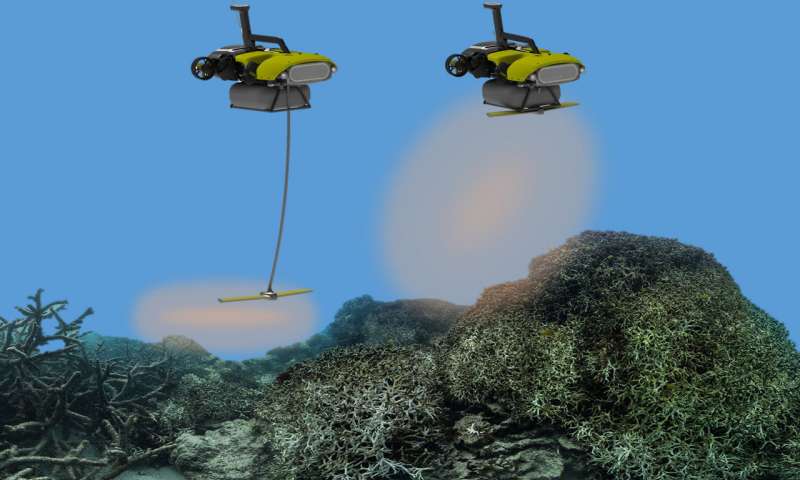
Over 15 years of ocean science and conservation online
The structure of scientific inquiry has coalesced around a model that is, in general, both expensive and exclusive. This centralizes knowledge production within a circle of individuals, organizations, and institutions which rarely reflects the breadth of identities, experiences, and ways of knowing of those most directly connected to the places being explored. Nowhere is this … Read More “It is your ocean. You should have access to the tools to study it.” »

Foghorn (A Call to Action!)
Flotsam (what we’re obsessed with right now)


Foghorn (A Call to Action!)
Flotsam (what we’re obsessed with right now)

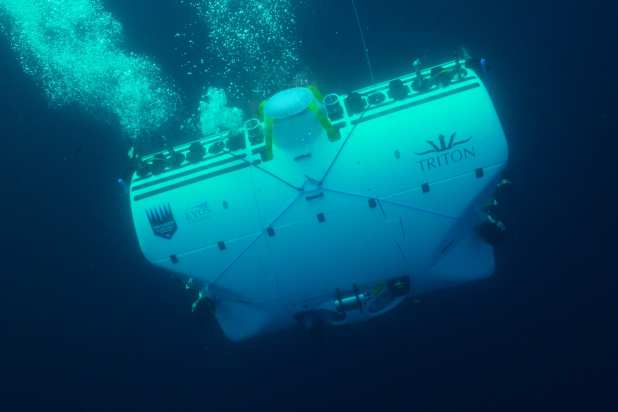
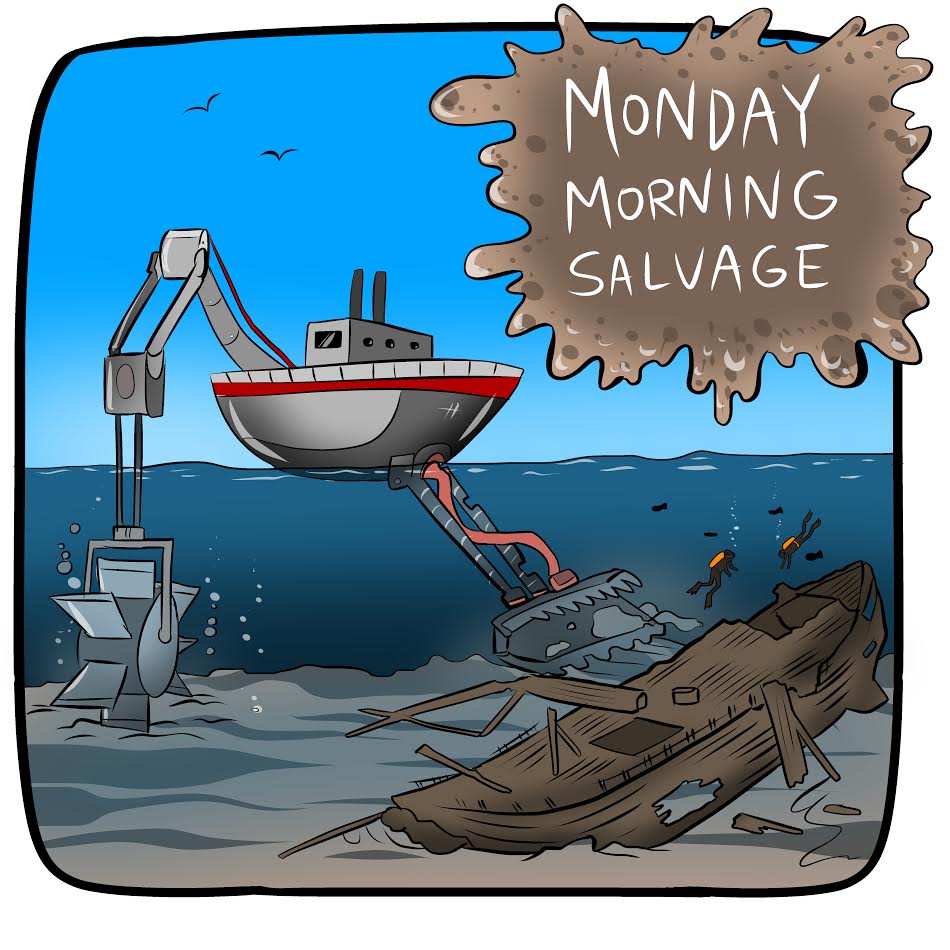
Fog Horn (A Call to Action)
Flotsam (what we’re obsessed with right now)

Flotsam (what we’re obsessed with right now)
Jetsam (what we’re enjoying from around the web)
Instead, I believe that this march needs to be completely apolitical and nonpartisan. I think that we should protest the current administration, which wants to repeal laws guaranteeing clean air and water, claim that climate change is a hoax, and remove scientists’ access to quality healthcare, but in a way that doesn’t alienate members of the current administration. We should demand change, but vaguely, and from no one in particular.
Source.
https://www.youtube.com/watch?v=V6stLjJ5lAo
The oceans belong to all of us. With this simple statement in mind, the Oceanography for Everyone (OfE) project was launched with the goal of making ocean science more accessible. One of the biggest hurdles in conducting ocean science is instrumentation costs, and 4 years ago the OfE team began trying to make one of the most basic ocean science tools, the CTD (a water quality sensor that measures Conductivity-Temperature-Depth), cheaper… much, much cheaper!
Read More “Fun Science FRIEDay – Open-Acess Science for the Masses” »
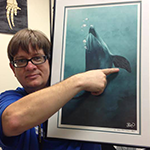 Joey Maier is a biology professor at Polk State College where he uses every possible opportunity to encourage his students to spend time in the water, play with technology, and do #CitizenScience. As an undergraduate, he did a stint as an intern for Mark Xitco and John Gory during their dolphin language experiments. He then spent the years of his M.Sc. at the University of Oklahoma thawing out and playing with bits of decaying dolphin. After discovering that computers lack that rotten-blubber smell, Joey became a UNIX sysadmin and later a CISSP security analyst.
Joey Maier is a biology professor at Polk State College where he uses every possible opportunity to encourage his students to spend time in the water, play with technology, and do #CitizenScience. As an undergraduate, he did a stint as an intern for Mark Xitco and John Gory during their dolphin language experiments. He then spent the years of his M.Sc. at the University of Oklahoma thawing out and playing with bits of decaying dolphin. After discovering that computers lack that rotten-blubber smell, Joey became a UNIX sysadmin and later a CISSP security analyst.
While his pirate game is weak, he is often seen with a miniature macaw on his shoulder. His spare time is spent SCUBA diving and trying to hang out with people who have submersibles. You can follow him on Twitter or Facebook.
There’s a Klingon bird of prey hanging from the ceiling in my office.
I may teach biology, but at heart I’m a sci-fi nerd. Naturally, I’m interested in futurism, robots, lasers and all manner of techy paraphernalia. I’d been watching the OpenROV project for a while, but hadn’t gotten one yet. They were obviously awesome little machines that gave me a serious case of gadget envy, and I knew that some of our students would love to pilot an ROV. I needed a much better reason than that, however, to justify getting one. There’s no line item in our budget for, “Wow, that’s cool!” and I was fairly certain that the college administration would tend to favor lower cost and more familiar forms of student engagement
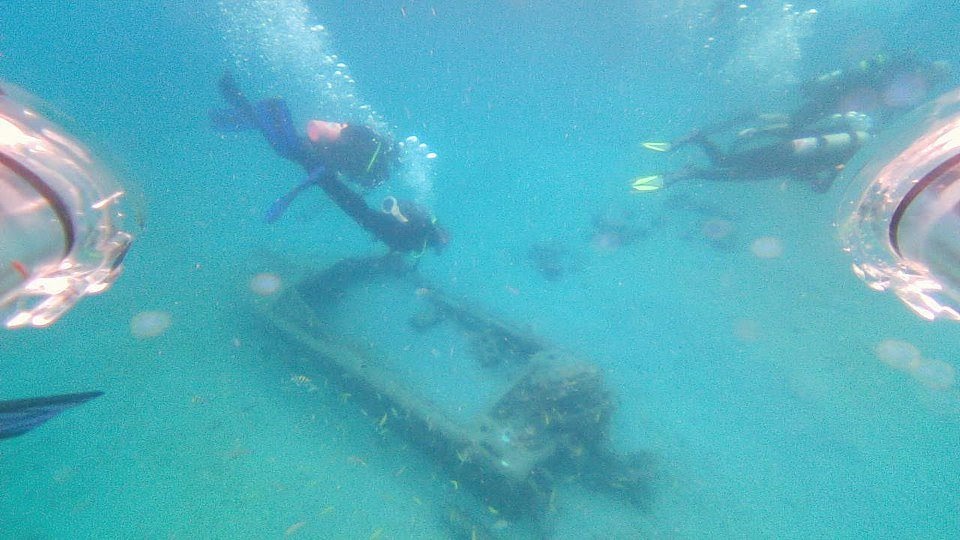
This tweet changed everything. When I found out that Andrew had designed a mini-Niskin bottle, the wheels in my head started turning. Assembling an OpenROV would, naturally, be a very STEM-oriented project. The times our students piloted the ROV could become water sampling field trips, and the kids could analyze their samples back at school as a laboratory activity. If students recorded the process, they could make a short film. I mulled over the possibilities and bounced ideas off of my dive buddies during the hours we spent traveling to and from the coast.
Read More “Big ideas and little robots: Using the OpenROV in interdisciplinary STEM projects” »
I first heard about the new Wyoming law #SF0012 through the Slate article summarizing it as a criminalization of citizen science. There’s a real danger that it could be interpreted and implemented that way, but let’s try and give Wyoming the benefit of the doubt for a minute. The text of the law only requires that scientists (citizen or otherwise) acquire written or verbal permission from landowners for collecting data on their land. It goes on to define what “data” means, including photographs in a fairly wide definition, and “collecting” as taking data with the intention of turning it over to a state or federal agency. It also defines trespassing and outlines the consequences for those who fail to receive permission. In short: the data collector could go to jail and their data will not be admissible in legal or policy proceedings.
At the core, the law re-hashes a fairly common definition of trespassing. The key part of the law that’s new is that the data won’t be admissible in court and the act of turning them over to federal or state agencies will make you an outlaw. Part of me thinks that data collectors, including citizen science groups, should be asking permission to go on someone’s land. This is both to keep ethics at the forefront of our scientific endeavors and for the personal safety of scientists (ranchers are known to carry shotguns, after all).
Read More “Did Wyoming really just outlaw citizen science?” »
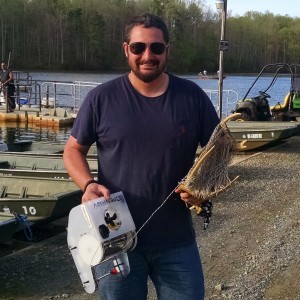 Two years ago, I moved to San Francisco. It was… an experience. I had the opportunity to meet some incredible technologists, leaders in the emerging world of citizen exploration, and developers, coders, and makers using their skills and expertise to help save the environment. I met some amazing drone builders developing platforms and tools to measure the world. I also learned that West Coast living was not for me. The southern Atlantic coast called me back. But before I left, I led a small team across the Pacific to Papua New Guinea, where we taught undergraduates from the University of Papua New Guinea and the University of the South Pacific how to build and operate OpenROVs and incorporate them into marine ecology research.
Two years ago, I moved to San Francisco. It was… an experience. I had the opportunity to meet some incredible technologists, leaders in the emerging world of citizen exploration, and developers, coders, and makers using their skills and expertise to help save the environment. I met some amazing drone builders developing platforms and tools to measure the world. I also learned that West Coast living was not for me. The southern Atlantic coast called me back. But before I left, I led a small team across the Pacific to Papua New Guinea, where we taught undergraduates from the University of Papua New Guinea and the University of the South Pacific how to build and operate OpenROVs and incorporate them into marine ecology research.
The West Coast was good to me. It helped refine my vision for bringing low-cost, open-source technologies into the marine science and conservation world. Citizen science is becoming increasingly important, and the need for both democratizing and decolonizing science will drive much of the evolution of the scientific community in the 21st century. Tools that are effective, cheap, and open-source will play a major role in this transition. I returned east and began planning the next phase of this vision.
The Chesapeake Bay (San Franciscans take heed, you can keep your “Area” but “The Bay” will always be the Chesapeake) is the largest estuary in the United States, is economically important for shipping, fisheries, and tourism, and also happens to be the body of water that I grew up on. I learned to swim, fish, sail, and motor in one of the Bay’s many tributaries. It’s also home to more than a dozen research institutes, which work, sometimes in coordination and sometimes not, on studying and protecting the Bay.
Read More “From Sea and Sky: Hacking the Chesapeake with #BayBots” »
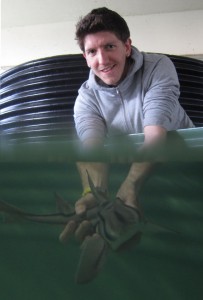 Dr. Ryan Kempster is a shark biologist in the Neuroecology Group at the University of Western Australia. Ryan founded the shark conservation group Support Our Sharks to inform the world about the plight of the most vulnerable shark species. His research focuses on the sensory biology and conservation of sharks and rays. Sharks have always been his passion, and protecting them his goal. To do this, Ryan has embarked on a career in research to better understand sharks. He takes every opportunity to communicate his findings to the general public in the hope that he can inspire others to follow in his passion for protecting these amazing animals.
Dr. Ryan Kempster is a shark biologist in the Neuroecology Group at the University of Western Australia. Ryan founded the shark conservation group Support Our Sharks to inform the world about the plight of the most vulnerable shark species. His research focuses on the sensory biology and conservation of sharks and rays. Sharks have always been his passion, and protecting them his goal. To do this, Ryan has embarked on a career in research to better understand sharks. He takes every opportunity to communicate his findings to the general public in the hope that he can inspire others to follow in his passion for protecting these amazing animals.
Effective management of sharks starts with an understanding of their population status, which ultimately instructs their future conservation. Unfortunately, many shark species are at significant risk of unrecoverable decline, with some species having declined to near extinction in recent years. We believe that Citizen Science could hold the key to improving our understanding and management of shark populations, whilst also advancing community education. This is why we have developed SharkBase, a global shark encounter database helping to map the distribution and population structure of sharks worldwide (you can also record ray and skate sightings).